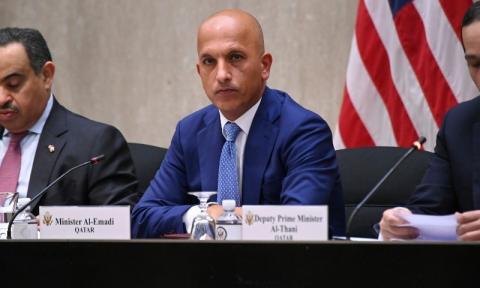Yemen Key Message Update: Reversal of terrorist designations eases related concerns about potential impacts on food access, January 2021


Key Messages
Protracted conflict and poor macroeconomic conditions in Yemen continue to disrupt livelihoods, reduce access to income, and drive significantly above-average food prices. Crisis (IPC Phase 3) outcomes are widespread, even in the presence of large-scale humanitarian assistance in many areas, with pockets of Emergency (IPC Phase 4) outcomes likely. In the February to May period, Emergency (IPC Phase 4) outcomes are expected at the governorate level in Hajjah and Amran as the lean season progresses. Although not the most likely scenario, Famine (IPC Phase 5) would be possible if food supply is cut off for a prolonged period of time.
On February 5, the US Department of State notified Congress of its intent to reverse the designations of Ansar Allah as a Foreign Terrorist Organization (FTO) and Specially Designated Global Terrorist (SDGT) made by the previous US administration on January 19. Based on an analysis of information from key informants across multiple sectors, this is expected to have generally prevented any meaningful disruptions to humanitarian and private sector activities. While some disruption to commercial food imports may have occurred due to decisions made by commercial actors in January, the reversal of the designations is likely to be finalized by the end of February, after which importers are expected to revert to their normal operations. Overall, no notable impacts on food availability are expected due to the designations, given the likelihood of minimal disruption to imports, and given that some month-to-month volatility in import levels is typical, with traders anticipated to be able to draw on existing stocks for a short period of time.
According to data from UNVIM and FAO, food import levels through Yemen’s main sea ports of Aden, Al Hudaydah, and Salif in January 2021 totaled 645,918 MT, 43 percent higher than the monthly average in 2020. However, key informants reported in December 2020 that the Central Bank of Yemen (CBY) in Aden used the last of the $2 billion Saudi deposit. As such, concern is mounting over possible disruption to Yemen’s import financing mechanism, though this is not the expectation in FEWS NET’s most likely scenario. Meanwhile, fuel shortages continue to impact livelihoods and food prices in northern areas. Fuel import levels through the Red Sea ports in January 2021 remained low at 80,854 MT, a total 43 percent lower than the monthly average in 2020. According to key informants, fuel prices increased in many northern governorates in the second half of January 2021.
In southern governorates, the YER appreciated by an average of 7 percent from November to December 2020 according to data from FAO, but has since lost the value gained in December, according to key informants. In northern areas, the parallel exchange rate remained stable. According to FAO price data, food prices increased significantly in many southern areas and in Amanat Al Asimah (Sana’a City) from November to December 2020, with the price of staple wheat flour increasing by 18 percent in Aden, 12 percent in Amanat Al Asimah, 11 percent in Lahij, 8 percent in Al Dali’ and Hadhramaut coast, 7 percent in Al Mahrah, 6 percent in Hadhramaut valley and Shabwah, and 5 percent in Ta’izz. Driven by depreciation of the currency in southern governorates over the past year, wheat flour prices in the south are significantly higher than they were at the same time last year, by over 60 percent in Aden, Al Mahrah, Lahij, and Shabwah. Key informants report that food prices have increased further in January 2021, driven by fuel shortages in northern areas and depreciation of the currency in southern areas.

Paris — The French humanitarian organization Acted announced that it has delivered cash assistance to nearly 89,000 people affected by displa…

Sana’a — Fuel and food imports into ports under the control of Yemen’s Houthi movement on the Red Sea have continued to fall for…

ADEN — Yemen Airways, the country’s national carrier, announced it will resume flights between Aden and Abu Dhabi beginning in January…